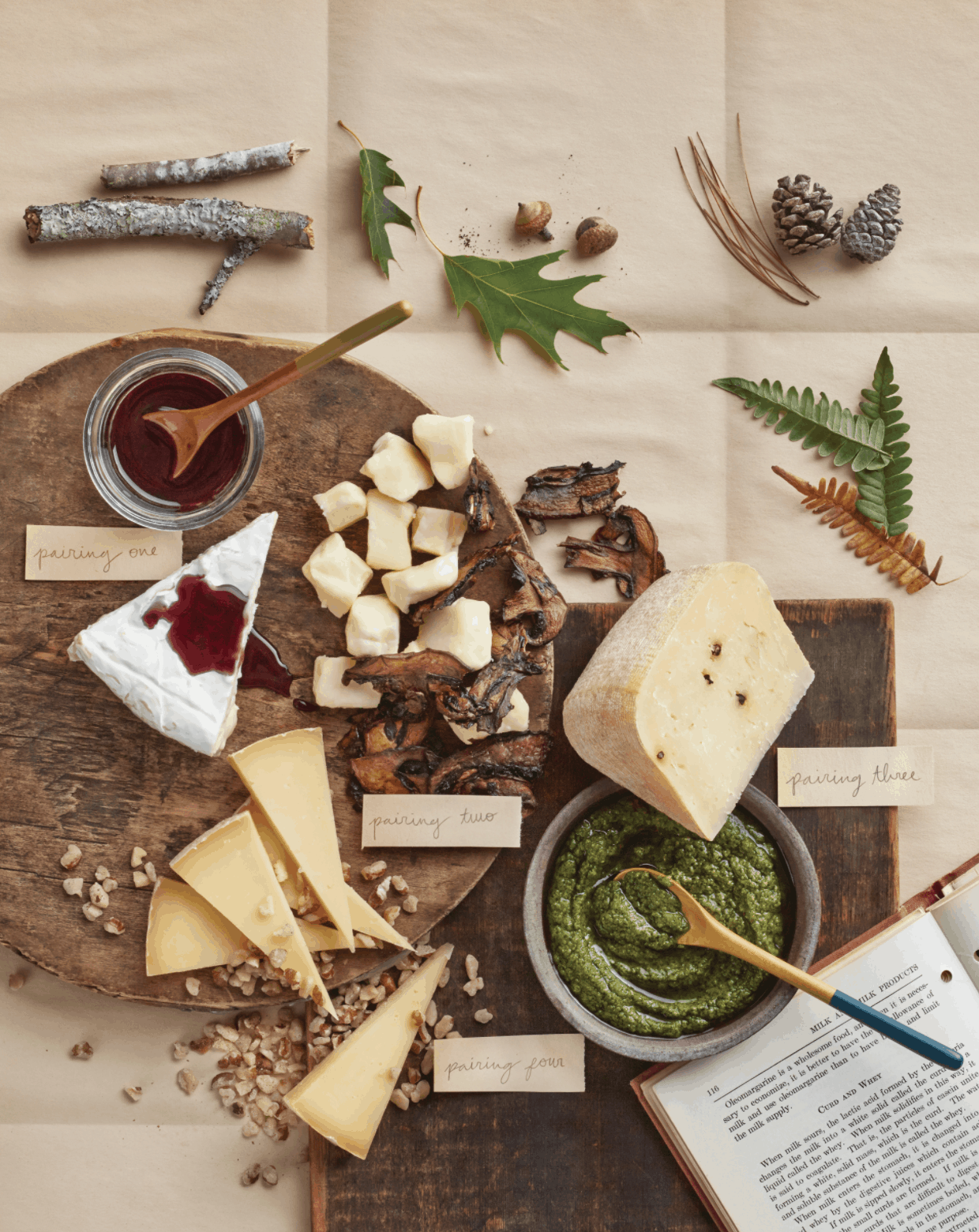
Photographed & Styled by Nina Gallant
Now more than ever we’re being forced to examine our food sources. Where do you buy your favorite wedge? How are your veggies grown? Who’s your butcher? For many of us, the answer is probably the nearest grocery store. For others, like Tyler Akabane of the Boston-based mushroom delivery service Mushrooms For My Friends, the answer is foraging.
“[Foraging provides] new and different flavors that [aren’t] possible from store-bought foods,” says Akabane. What started as a clever Instagram handle and a friendship with Boston’s original mushroom man, Ben Maleson, has since evolved into hands-on field classes, supplying top-notch restaurants like Somerville-based Tasting Counter with flawless fungi, and the pandemic-friendly food delivery Akabane recently developed. When it comes to finding your own foraged goodies, consult a pro: nature’s bounty can be poisonous (like certain mushrooms, berries, and greens), but the experts will help you get the good stuff. Check your local farmers’ market or specialty food store for wild accompaniments like those below or take advantage of services like Akabane’s mushroom mobile to get hyper-local treats delivered to your door.
1. OLD CHATHAM CREAMERY CLASSIC CAMEMBERT
Origin: Old Chatham, New York
Milk: Raw Sheep and Cow’s Milk
+ ELDERBERRY SYRUP
“Elderberry loves the edges of wetlands,” says Akabane. These not-too-sweet berries grow wild across most of the United States, but he cautions against over picking as they’re a staple for many birds. He likes to turn his foraged elderberries into syrup by boiling with a 50/50 mixture of sugar and water. Drizzle over the slightly sheepy, super buttery Old Chatham Creamery Classic Camembert for a quintessential sweet-and-savory matchup.
2. BIRCHRUN HILLS FARM CHEESE CURD
Origin: Chester Springs, Pennsylvania
Milk: Pasteurized Cow’s Milk
+ MUSHROOM JERKY
Foraging mushrooms can be especially tricky and potentially life-ending if you don’t know what you’re looking for, so source foraged mushrooms from an operation like Mushrooms For My Friends or a local farmer before going the DIY route. “Sometimes you have too much of a good thing and want it to last,” says Akabane. Preserve part of your mushroom haul (meaty varieties like hen-of-the-wood and chanterelles work best) by making veg-friendly jerky—cook in soy, sugar, and garlic, then dehydrate the ‘shrooms until they’re leather-like. Pair with something equally snackable, such as Birchrun Hills Farm Cheese Curds.
3. BELLWETHER FARMS PEPATO
Origin: Sonoma County, CA
Milk: Raw Sheep’s Milk
+ FORAGED GREENS PESTO
Preservation is the name of the game when it comes to pesto; use this preparation method as a way to extend the life of those precious foraged greens. Akabane recommends collecting your leaves in the spring (garlic mustard, dandelion greens or wild chives, but radish and carrot tops work too), blitzing in the food processor with Parmesan, salt, pepper, and plenty of oil, then freezing in an air-tight container until you’re ready to use. Your homemade foraged greens pesto will keep for nine to 12 months when frozen and can be defrosted for autumnal cheese plates and beyond! Amp up the pepper by pairing with Bellweather Farms Pepato.
4. SWEET GRASS DAIRY GRIFFIN
Origin: Thomasville, Georgia
Milk: Raw Cow’s Milk
+ BLACK WALNUTS
Nuts with cheese is a no-brainer, and black walnuts, with their earthy, bold flavor, make a more exciting partner than English walnuts. Even those available commercially are hand-harvested in the wild. If you’re lucky enough to have a tree in your neighborhood, be aware that their exceptionally hard shell makes them literally a tough nut to crack, says Akabane, who has found them at farmers’ markets as cracked pieces in the shell. To complement their intensity, pair them with a hunk of the malty cow’s milk Griffin from Sweet Grass Dairy. The Georgia cheesemakers soak the curds in Terminus Porter from nearby Gate City Brewing to give this cheese its depth.




